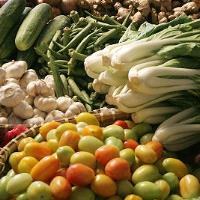(BRUSSELS) – A new EU school fruit, vegetables and milk scheme for healthy eating was in place from 1 August, ready to be implemented across the European Union as of the first day of the 2017/2018 school year.
Aimed at promoting healthy eating habits among children, the scheme will include the distribution of fruit, vegetables and milk products, as well as dedicated educational programmes to teach pupils about the importance of good nutrition and to explain how food is produced.
This single scheme merges and optimises existing projects, which reached over 20 million children in 2016. Although participation is optional, all 28 Member States have indicated they will take part in the initiative in the 2017/2018 school year.
“The scheme provides valuable support to millions of European schoolchildren and thousands of farmers in every Member State,” said Agriculture Commissioner Phil Hogan: “Such support has proven particularly important for farmers in recent years and the increased funding will enhance the value of this support. In addition, the new scheme meets my priority of simplification through the integration of the former school milk and vegetable schemes.”
Fresh fruit, vegetables and drinking milk will be given as a priority to school children. Processed products such as soup, fruit compotes, juice, yoghurts and cheese may also be distributed if this choice is approved by national health authorities. No added sugar, salt and fat are allowed unless the national health authorities permit limited quantities.
Besides deciding on the exact way to put the scheme in place,like the inclusion of thematic educational measures and other agricultural products, Member States have the option to top up the EU aid with national aid for financing the scheme.
This choice of products shall be based on health and environmental considerations, seasonality, variety and availability with priority to EU products. Member States may encourage local or regional purchasing, organic products, short supply chains, environmental benefits, agricultural quality schemes.
Of the EUR 250 million EU funding agreed for 2017-2018 school year, roughly EUR 150 million will be allocated for fruit and vegetables and EUR 100 million for milk.
From 1 August 2017, the two current schemes – the School Fruit and Vegetables Scheme and the School Milk Scheme – will be brought under a single legal framework. The new rules aim at greater efficiency, more focused support and an enhanced educational dimension.
Currently, 24 Member States take part in the old fruit and vegetable scheme and 28 in the old milk scheme. Last year, around 20 million children benefited from the milk scheme and around 11.7 million children from the fruit and vegetables scheme.
Annex: EU aid for school year 2017/2018
|
Member State |
Definitive allocation for school fruit and vegetables in EUR |
Definitive allocation for school milk in EUR |
|
Belgium |
3 367 930 |
1 650 729 |
|
Bulgaria |
2 677 109 |
1 167 367 |
|
Czech Republic |
4 082 903 |
1 842 407 |
|
Denmark |
2 386 393 |
1 606 402 |
|
Germany |
25 826 315 |
10 947 880 |
|
Estonia |
565 888 |
732 225 |
|
Ireland |
2 007 779 |
900 398 |
|
Greece |
3 218 885 |
1 550 685 |
|
Spain |
12 932 647 |
6 302 784 |
|
France |
17 990 469 |
17 123 194 |
|
Croatia |
1 720 946 |
800 354 |
|
Italy |
21 704 956 |
9 261 220 |
|
Cyprus |
390 044 |
400 177 |
|
Latvia |
813 091 |
745 497 |
|
Lithuania |
1 134 661 |
1 091 333 |
|
Luxembourg |
343 568 |
193 000 |
|
Hungary |
3 885 599 |
1 972 368 |
|
Malta |
372 747 |
144 750 |
|
Netherlands |
7 063 251 |
2 401 061 |
|
Austria |
2 946 591 |
1 278 933 |
|
Poland |
14 985 916 |
11 047 202 |
|
Portugal |
3 283 397 |
2 220 981 |
|
Romania |
6 866 848 |
10 865 578 |
|
Slovenia |
727 411 |
363 811 |
|
Slovakia |
2 185 291 |
1 020 425 |
|
Finland |
1 599 047 |
3 824 689 |
|
Sweden |
0 |
9 245 859 |
|
United Kingdom |
0 |
4 219 008 |
|
Total |
145 079 683 |
104 920 317 |
Further information


